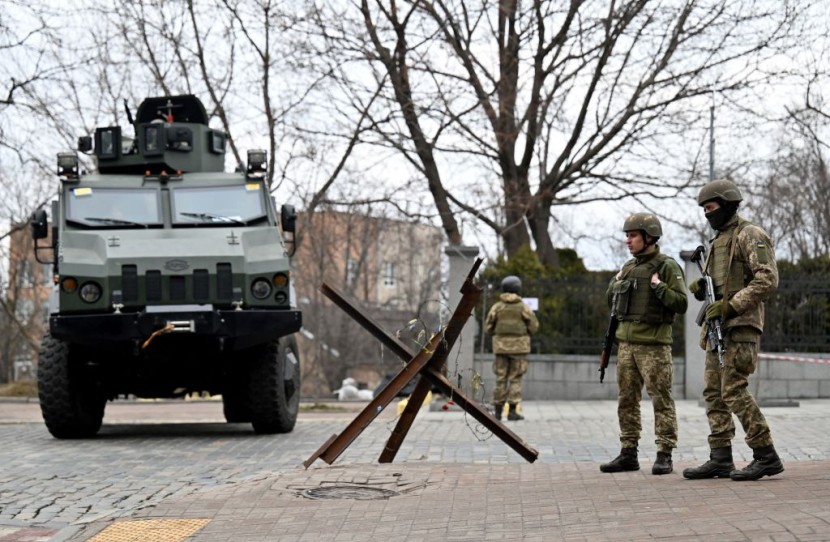
We were confronted with a human catastrophe within hours of Russia's invasion of Ukraine: the loss of lives and the damage or seizure of infrastructure. The economic catastrophe that follows will have a huge human cost. The economic impact, on the other hand, will not be limited to Ukraine and Russia.
First, the Russian economy is significant, owing to its role as a major worldwide provider of commodities such as oil and gas, as well as nickel, palladium, coal, copper, and wheat.
Ukraine Invasion: What It Means to The World?
Europe is especially vulnerable to a supply disruption since it is so reliant on Russian oil and gas. More than 20% of Germany's gas comes from Russia, which is why German Chancellor Olaf Scholz made the bold decision to cancel the Nord Stream gas pipeline's operations.
The situation threatens not only a profound chill for German consumers if Putin cuts off their gas, but also huge worldwide economic consequences due to Germany's pivotal role in the European supply chain.
This might occur in one of two ways. By shutting off the gas supply, Russian President Vladimir Putin may cause worldwide upheaval of Western sanctions on Russia might have a similar effect on a world economy already beset by inflation and COVID-related supply-side shocks.
That's before the second-order consequences of Russia's retaliatory measures. Aside from oil and gas, Russia is a key worldwide source of palladium and aluminum, both of which are crucial to the global car industry. In 2018, US sanctions against Rusal, Russia's largest aluminum exporter, triggered a 30 percent increase in the global price. As a result, there may be an immediate inflationary effect.
Furthermore, Putin has developed strong relationships with Saudi Arabia and other oil-producing countries, so this will not be as simple as it looks. As a bulwark against the West, Russia has strengthened its connections with Iran and other non-democratic regimes in the rising world, according to The Sydney Morning Herald.
Is Ukraine Invasion the Start of WWIII?
President of Ukraine Volodymyr Zelenskyy said on Twitter on Thursday: "Russia treacherously attacked our state in the morning, as Nazi Germany did in 2#WW years. As of today, our countries are on different sides of world history."
Russia treacherously attacked our state in the morning, as Nazi Germany did in #2WW years. As of today, our countries are on different sides of world history. 🇷🇺 has embarked on a path of evil, but 🇺🇦 is defending itself & won't give up its freedom no matter what Moscow thinks.
— Volodymyr Zelenskyy / Володимир Зеленський (@ZelenskyyUa) February 24, 2022
Ukraine's previous prime minister, Oleksiy Honcharuk, has warned that the Russian invasion might lead to a third global war. Honcharuk described Thursday's attacks as a "critical moment," claiming that Putin only "recognizes power" and that the bloodshed between the two nations will continue. Between 2019 and 2020, Honcharuk served as Prime Minister.
Even though the United States does not rely on Russia for large imports, central bankers warned that geopolitical concerns "may induce rises in global energy costs or exacerbate global supply constraints" at a recent conference.
After more than two years of shutdowns and COVID-19-related restrictions, Russia's invasion might cause a further delay in the United States' return to normalcy. The economic repercussions were felt on Wall Street, according to The Wall Street Journal, as futures retreated by a broad daily margin of 2.5 percent.
Although the United States buys very little Russian oil, changes in oil prices in one area of the world influence pricing in all other parts of the world. On Thursday, Vice President Joe Biden stated that his government is using "every weapon at its disposal" to defend American families and businesses from increasing gas costs.
Russia produces 10 million barrels of oil per day, or about 10% of world demand, and is Europe's top natural gas provider, which is used to operate power plants and heat homes and businesses. Oil prices have climbed to roughly $6 per barrel, but the stock market has collapsed.
Should Russia invade a NATO member nation, including Ukraine, NATO Secretary-General Jens Stoltenberg stated that the armed alliance will defend every inch of its land. Two Ukrainian republics were founded during World War I, one on either side of the former Russian-Austrian border. In 1919, they combined to become the Ukrainian People's Republic, which is now an independent country.
Ukraine's pro-independence forces were defeated by the Soviet Union soon after, and the Ukrainian Soviet Socialist Republic was admitted as a founding member of the USSR in 1922. In 1991, however, a referendum on Ukrainian independence was overwhelmingly supported by a majority of Ukrainians in every area, resulting in a landslide victory of more than 90%. The Soviet Union ceased to exist a week later, USA Today reported.
Related Article : Ukraine Provinces Experience Power, Internet Blackouts After Germany Announces Sanctions on Russia
@YouTube








